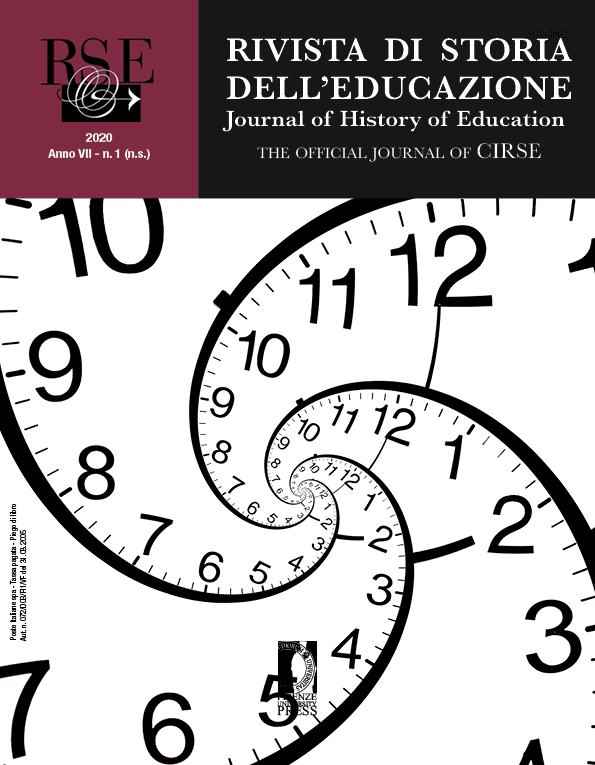Fifty years following its approval, contextualizing Decreti Delegati has to be strictly linked to a historical period which we need to understand, i.e., the Seventies. During the last decades, essays about the topic have multiplied: the Seventies caught the interest of historical and educational-historical research as they reveal themselves as a period marked by specific and partially transitional features. The motive lies not only in the legacy of reforms, either realized or not; but also in the expectations, in the social practices and in the new collective relations which marked that decade on a socio-cultural basis as well as on a scholastic one. The crisis of familiar and institutional structures rooted in the Italian context, in addition to the development of new manners of conceiving the relationship between individual and society, have marked the scholastic institution as well as the way education has been daily perceived in the context of formal, un-formal and non-formal education. The reforms realized, such as the integration of disabled students or “150 hours” of workers or full-time education, and the ones merely planned, namely the “scuola superiore” reform, have been both conditioned by a tough context, where new ideas and new methods of thinking, working, studying and spending time together spread themselves around classrooms.
This call for paper aims at stimulating thoughts and analysis about a decade deemed pivotal for understanding Italy and contemporary school in the domain of history of education. Though this does not claim to identify the entirety of the topics covered, the listing below indicates several that are included in the monographic number, notably:
- How the students’ contestation affected the structure of the Italian scholastic system: the crisis of authoritarianism, the administrative de-verticalization and the transformation in teachers’-students’ relationship; the consequences that the reform triggered: guaranteeing the evolution in participation, assemblearism and solidarity; and finally, the students’ contestation and the institutionalization of collective movements, from the legacy of ’68 to the movement of ’77.
- The changing identity of teachers’ profession, which must be contextualized in the framework of trade unions’ innovation and scholastic life. It ends up in a circular institutional process which involves centre and periphery in a mutual exchange.
- The pedagogical debate arisen in those years, especially for what concerns the so-called deschooling movement and the links between school and territory.
- The reforms of the 1970s: the introduction of social scholastic management and the first decentralization processes occurred in school; the integration of disabled people in normal schools which ended the different kinds of special education; the realized and unrealized reforms in the context of the “big reform” debate; the transformation of un-formal education; the outcomes of permanent education in adult lives, marked by the introduction of the “150 hours”, training and updated courses for teachers;
- School representation: in media (from newspapers to cinema and radio-television); in literature.
- Myths and contemporary perceptions about school during 1970s, from its impact on the educative system of today to its outcomes on the contemporary, decentralized education system.
By 31 January 2023, authors must submit to the editors (Chiara Martinelli: chiara.martinelli@unifi.it; Pietro Causarano: pietro.causarano@unifi.it) an extended abstract of their proposal (800 words), illustrating its contexts, the theoretical framework of reference, the methodologies and documentation considered, its place in the literature of the subject, 3-5 keywords. The proposal must be accompanied by a brief bio of the authors (about 75 words).
The selection by the editors and the editorial board of the review will take place by 28 February 2023.
By 31 October 2023 authors must send to the editors the complete manuscript, of no more than 8,000 words (approximately 45,000 characters), including bibliography and notes, drawn up according to the editorial criteria adopted by the journal (to access the editorial rules: https://www.dropbox.com/s/ne830zn2n9x88tk/Editorial%20guidelines%20RSE%20open%20access%20FIN%20EN.pdf?dl=0).

